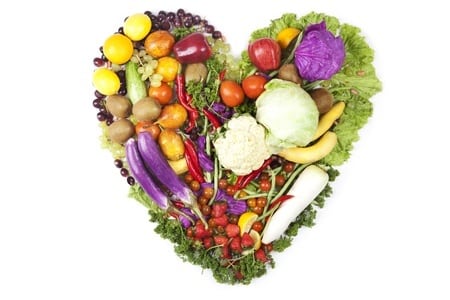 Many people have the misconception that a vegan diet is a ‘solve all’ for fighting obesity, that it automatically cures or prevents heart disease, or other health related illnesses. This however, is simply not the case. That is, as pursuing a diet rich in fruits and vegetables is one that requires a serious level of commitment, discipline, patience, and of course dedication.
Many people have the misconception that a vegan diet is a ‘solve all’ for fighting obesity, that it automatically cures or prevents heart disease, or other health related illnesses. This however, is simply not the case. That is, as pursuing a diet rich in fruits and vegetables is one that requires a serious level of commitment, discipline, patience, and of course dedication.
In fact, those that are considering and attempting a vegan diet often cut off all their main sources of protein and potassium by deducing meats from their diet, yet fail to adhere to a realistic transitional diet that will replenish or avoid such nutritional losses. Therefore, a vegan diet is understandably not for everyone. Women who are pregnant, nursing, and even children in general are advised not to pursue vegan diets as their bodies are far too sensitive during this period to dietary changes, and keeping up with the mineral and vitamin losses from doing so is often not honored within realistic time.
While there has been slight growth in vegan diets across the United States alone as much as 3% of the population, it becomes more and more evident that such a diet is not for everyone—especially those with a fast paced life or inability to consistently honor such a diet on a regular basis. Individuals with blood and other health-related conditions should be hesitant to attempt such a plant and fruit-based diet. Rather, it’s much more responsible for such individuals to first consult with a physician and nutritionist before attempting such a substantial dietary change.
Although a vegan diet can drastically improve the consumption level of Vitamin C, http://umm.edu/health/medical/altmed/supplement/potassium potassium, and magnesium, these advances all require regular meals throughout the day and consistently influenced by a vegan diet accordingly. For anyone serious about a vegan diet, those that cannot help themselves but to continue to assume unhealthy and unnatural starches, carbs, and sugars are ill-advised to consider a vegan diet, as it’s evident that such individuals first must learn and discipline themselves to deduce unhealthy eating habits from any diet that they currently have or are considering pursuing in the future.
Many people struggle to create and follow a practical vegan diet, as unfortunately plenty of people simply do not find the tastes of fruits and vegetables appealing—or at least anywhere near as appealing as the meats and any other unhealthy eating habits they currently have. It requires adequate research to truly understand which fruits and vegetables are most practically applied through a vegan diet, and it should be appreciated that just like any other diet, excessive consumption of the same foods on a regular diet can lead to unwanted health issues, discomfort, and even failure of the actual existence and acquisition of a meaningful vegan diet.
For anyone even considering a vegan diet, it’s worth pointing out that those whom consume meat could just as easily consider adding more fruits and vegetables to their current diet to reap health benefits. Additionally, anyone seriously considering shifting to a vegan diet might just as equally benefit by using such a transitional process to leave their old diet and slowly adjust into their new—vegan based diet, as opposed to just quitting meat consumption “cold turkey”.
Image credit: ximagination (123rf.com)
